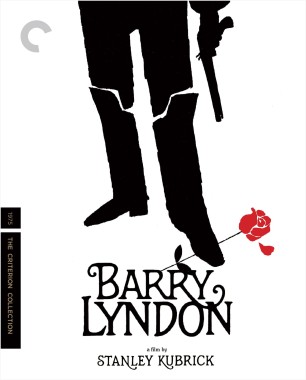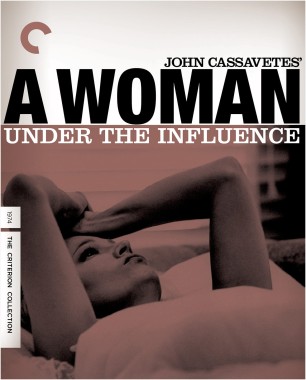
Pablo Larraín’s Top10
Chilean writer-director-producer Pablo Larraín’s features include Fuga (2006); Tony Manero (2008); Post Mortem (2010); No (2012), which won Best Film in the Directors’ Fortnight at the Cannes Film Festival and was nominated for the Best Foreign Language Film Academy Award; the Golden Globe–nominated films The Club (2015) and Neruda (2016); and Jackie, which won the Golden Lion for Best Screenplay at the Venice Film Festival and was nominated for three Academy Awards. He produced Sebastián Lelio’s A Fantastic Woman, which won the Academy Award for Best Foreign Language Film in 2018. In 2019, his film Ema premiered at the Venice Film Festival, and his latest, Spencer (2021), has been garnering awards for Pablo and its star, Kristen Stewart.
-
1
Stanley Kubrick
Barry Lyndon
Barry Lyndon is a movie that I love, and it was relevant for the making of Spencer. I watched it a lot with our production designer, Guy Hendrix Dyas, and our cinematographer, Claire Mathon. We were looking not only at technical and practical things, like the use of candlelight, but also at the absurdity of certain traditions that have been repeated over time and become really funny. For me, Barry Lyndon is an incredible comedy. But it’s also very beautiful and has a unique tone and mood that’s particular and different from all of Kubrick’s other movies. It has some shots that are very still and static; the light is completely mesmerizing, and it really does feel like a painting. We found inspiration for certain shots in Spencer from those moments.
I love the scene with the duel between Barry and Lord Bullingdon. After the lord misfires his pistol and Barry fires at the ground, the man organizing the duel says, okay, can we consider this finished, have you found satisfaction? And the lord says, no, there’s no satisfaction. To me, the idea of satisfaction is one the biggest concepts in art. Art can be a celebration of life, or it can be the most miserable human material.
-
2
John Cassavetes
A Woman Under the Influence
Kristen Stewart and I both love this movie very much, so we saw it again when we were making Spencer. I love Gena Rowlands in that role; it’s probably one of the best performances ever, and the relationship she had with Cassavetes was obviously beautiful. It’s hard to say in what way it inspired us—that’s probably a question for Kristen—but for me two things were important. One is how Cassavetes and Rowlands were able to do something very simple but very complicated: being in the protagonist’s point of view. The audience is inhabiting the character’s internal perspective all the time, and you never leave it. The second thing is how her states of panic and desire are put in crisis with each other. You can feel it, and you can somehow relate to it, but the effect is indescribable. Rowlands also does something very difficult: although she’s always talking or dancing, she remains a big mystery. It doesn’t matter what she says; you will never be able to crack her, and that’s . . . hallelujah.
-
3
Claire Denis
Beau travail
Beau travail is an incredible exploration of masculinity, made by a woman. It shows how interactions among men can be so sensual and disrupting at the same time, and how people can feel attraction, but maybe because of their idea of their own sexuality or the conventions of masculinity (especially in the Foreign Legion, where everybody must be a tough), that desire becomes a fracture in their lives. That tension probably feels bigger than it would if you actually saw those desires acted upon.
It’s a very physical movie, with sweat, skin, muscles, repetition, and tough men—but it’s this broken masculinity. They’re all just fragile, broken people who want to be there to prove something to themselves. It’s also one of the greatest adaptations and has a strong identity and world of its own. It’s unrepeatable.
-
4
Luis Buñuel
Belle de jour
I haven’t seen Belle de jour in a long time, but it blew my mind, and I’m sure a lot of people feel the same. Catherine Deneuve’s character is moving through the world with a lot of pleasure, which is captivating, and there’s a strange psychological darkness all around. I relate to the film because Buñuel was working in a place that was not his home—his home was Spain, but here he was working in France and had previously worked in Mexico. So he was a foreigner, an outsider to the reality he was capturing, and I sometimes feel the same in my work. This also might be one of the most realistic movies he made. It still has that Buñuel thing where you never know if what’s happening is real, but I think it’s his most grounded film aside from Los olvidados.
-
5
Louis Malle
Elevator to the Gallows
Elevator to the Gallows is a classic for me. Louis Malle’s range was incredible. There’s something in the freedom of the main character (Jeanne Moreau) and how he filmed her. It’s so classy and so strange. There’s a shot when she’s walking through Paris being followed and we hear that Miles Davis score. I don’t know how he did that. That moment has chased me for a while.
Most soundtracks are there to repeat or support the situation or emotion that is already being portrayed by the image, but some musicians are able to create something that takes the film in a new direction. It’s unpredictable and beautiful when it happens. In Elevator to the Gallows, the mix of the jazz score with the black-and-white cinematography, the feeling of a dreamlike thriller, and the fact that you never know what Moreau’s character is going through or why she’s doing what she’s doing all combine to make a movie that can never be replicated.
-
6
Wim Wenders
Paris, Texas
Paris, Texas is another classic. I watched it again before making Spencer, when I was looking for movies about motherhood. It’s a very moving, simple, and extremely regional story. I’m haunted by Nastassja Kinski behind the glass in that pink sweater.
The movie makes me think that some of us are never completely at peace with our identity. It’s a permanent chase. These four characters—the father, the mother, the brother, and his wife—are all trying to understand their identities, first through themselves and then through this kid. The movie plays with the idea that they might reunite as a family, and although they decide not to be together, it’s in that process that they’re able to find themselves. It shows a very particular way of healing, and that’s what I call a happy ending.
-
7
Ingmar Bergman
Persona
Persona is fascinating. I don’t think any other movie has come close to what it does in terms of depicting two different people who become one, then become the other, then become themselves again, and so on. I’ve seen this approach used in Japanese Noh theater, where it’s live, and the characters are either puppets or people, and they become one with both personalities and then split apart and come back together. So it feels like that.
It’s also incredible how a film that is so grounded in psychology can become so weirdly poetic. The photography is classic—the black and white, those shadows and silhouettes, how the women look at each other—and then it becomes very moving. It manages to create this interesting transition from something cerebral to something so emotional, and it’s difficult to find that cocktail of intellect and poetry done so well.
-
8
Michelangelo Antonioni
Blow-Up
I’m a photographer, so my connection with Blow-Up is through photography. The film is based on a story by an Argentine writer I love, Julio Cortázar, and it’s just so elegantly and strangely made. The movies I like and the things I try to do are based more on tone and atmosphere than on plot or the drama that should be there. I wonder, how can you penetrate the audience through the little cracks on their nails or the sides of their eyes? Blow-Up goes into your senses in a very particular way. All of the scenes in the park, the photography and the models, the tennis game . . . it doesn’t make much sense, but it all has this incredible, indescribable atmosphere that I love. I don’t know how Antonioni got away with what he did, but he created a movie that’s in my bloodstream.
-
9
Abbas Kiarostami
Close-up
Close-up is one of the most unforgettable films about cinema, people playing themselves, and the question of what fiction is and isn’t, and who is and isn’t conscious of that distinction. Kiarostami is playing with the logic of cinema and culture and who represents what. He sets up this game, makes us understand the rules, and then, through his tone, creates something that is just him. I also love how he films his city. I think all filmmakers try to do that, to show how they relate to their people, their buildings, their streets, their alleys, their shadows, their sunny places.
-
10
Pier Paolo Pasolini
Teorema
Teorema is a classic, and Pasolini is one of my favorite filmmakers. It portrays a family and what happens after they receive a visit from a mysterious character played by Terence Stamp. I completely understand—if I was in that house and Terence Stamp came over, I would change my life right away. He comes in and he leaves, so all you see are traces. Spencer tries to do that; it’s a movie that deals with the consequence of the consequence. You never really see the problem. I learned from theater masters back home that the later you show the conflict, the better, because then you’re able to see the situation and the characters, instead of focusing on the problem itself. I admire how the movie stays with these family members whose lives and behaviors have all been altered in different ways by the presence of this man. It’s a movie about destiny. And I will say that when the maid levitates at the end, it made me understand that filmmaking is freedom. There’s no reason for that to happen. The rest of the movie is not like that, but then you see this moment and you suddenly understand everything.














